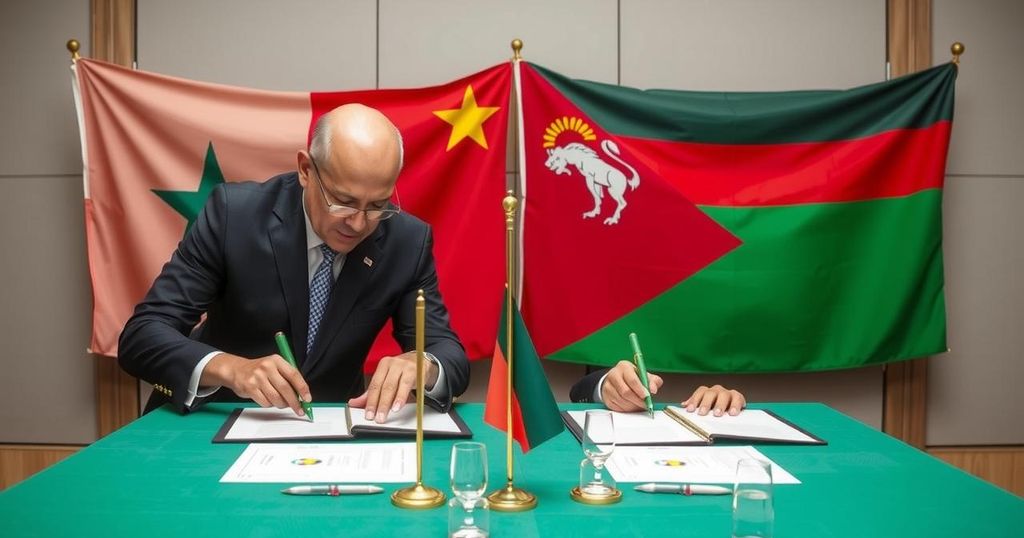Morocco and Zambia Strengthen Bilateral Ties with Seven Cooperation Agreements

Morocco and Zambia signed seven landmark cooperation agreements in Laayoune, focusing on areas such as tourism, renewable energy, and higher education. The agreements were part of the inaugural Joint Cooperation Commission session, which aims to strengthen bilateral ties amid the ongoing Sahara region dispute. Zambian Foreign Minister Haimbe conveyed support for Morocco’s regional autonomy plan.
On Friday, Morocco and Zambia solidified their bilateral relationship by signing seven pivotal cooperation agreements in Laayoune, a city in the disputed Sahara region. These agreements encompass several key areas including tourism, renewable energy, vocational training, justice, investment, and higher education. The inaugural session of the Joint Cooperation Commission, which facilitated these agreements, was co-chaired by Moroccan Foreign Minister Nasser Bourita and Zambian Foreign Minister Mulambo Haimbe. The ministers underlined their commitment to a multidimensional partnership that aligns with the aspirations of Morocco’s King Mohammed VI and Zambia’s President Hakainde Hichilema.
The cooperation agreements are significant in the context of the ongoing territorial dispute over the Sahara region. Morocco advocates for regional autonomy under its sovereignty, while the rival Polisario Front, supported by Algeria, seeks a referendum for the region’s self-determination. The agreements not only emphasize economic and social collaboration but also demonstrate a commitment to addressing shared regional and global issues, particularly in the context of the unresolved Sahara conflict.
In conclusion, the signing of these seven cooperation agreements between Morocco and Zambia marks a substantial enhancement in their diplomatic and economic relations. The significance of these agreements lies not only in their diverse focus areas but also in the shared commitment to addressing long-standing regional challenges, notably the Sahara dispute, through mutual support and partnership. The collaboration reflects a forward-thinking approach to international relations that benefits both nations.
Original Source: newscentral.africa








